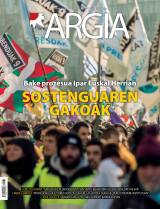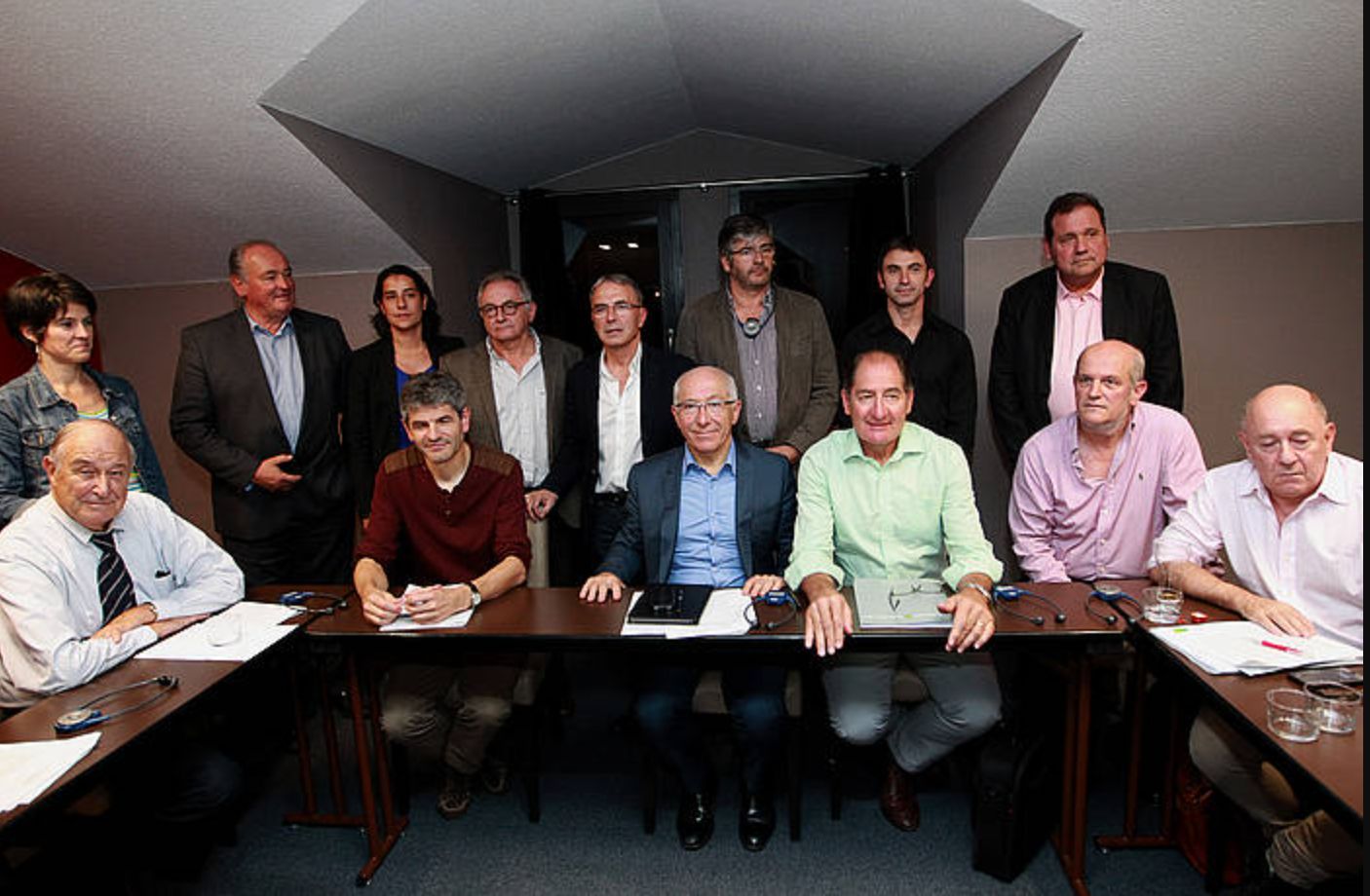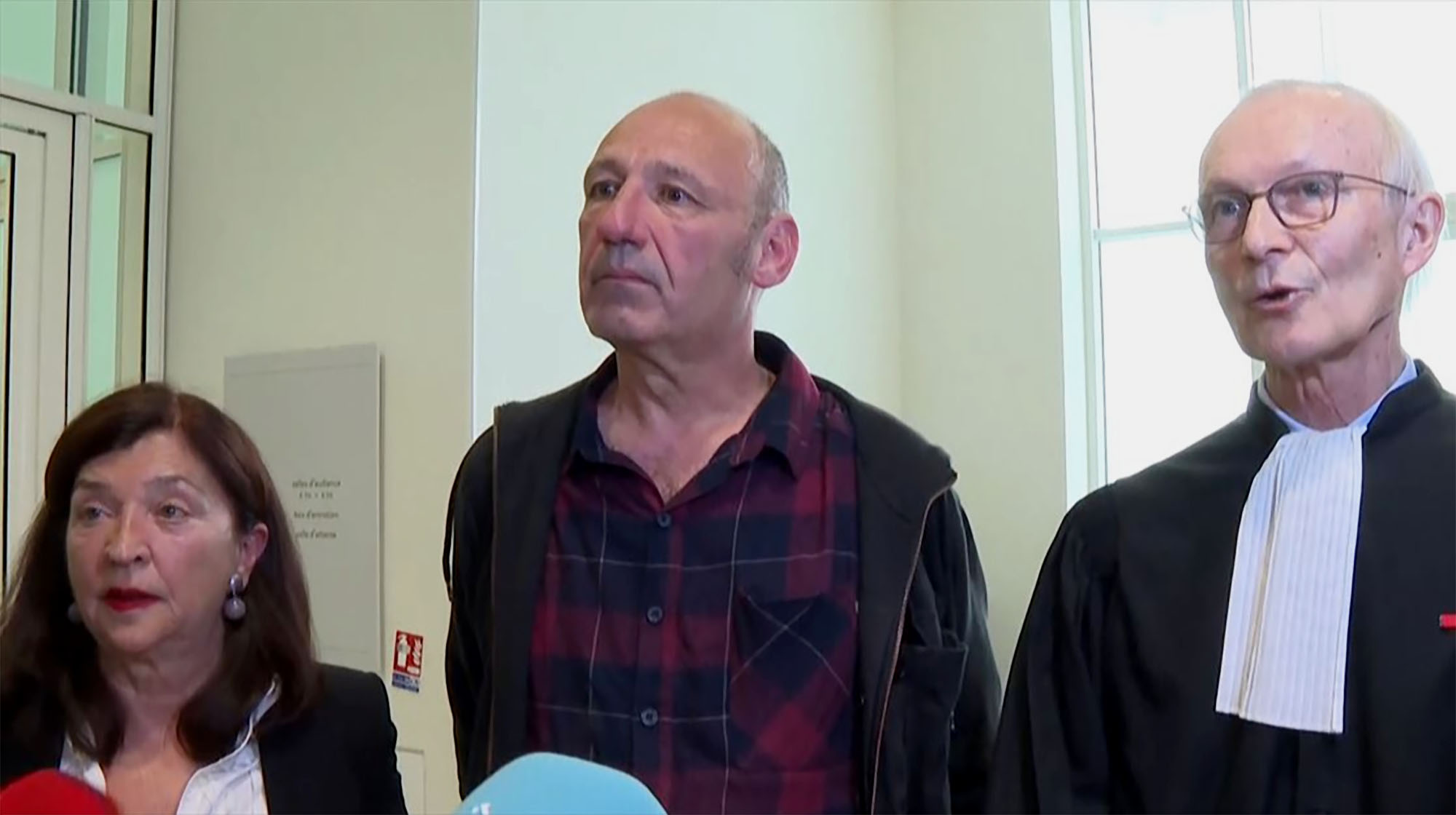Keys to the collaboration that has been consolidated and expanded over time
- If we look carefully at the broad support that the demand for the peace process has in Ipar Euskal Herria, we see that there is more than one root and that all are worthy of consideration. Since the 1990s and in the 2000s, collaboration between Basque and non-Basque countries has been strengthened, starting with territorial organization and extending to increasingly political areas. Endless changes have made possible a capacity for collaboration that is now evident.

We have almost become accustomed to the broad and plural support of the demand for the resolution of the political conflict in Ipar Euskal Herria. In the first line of the demonstration by the Basque political prisoners held in Paris, it was re-demonstrated on 9 December last year: Among the attendees were the members of the Basque Country present in the French Parliament and the president of the Assembly of Mayors of Iparralde, Lucien Bedbeder. All political trends together, Basque and non-Basque. In the last decade, topics such as the peace process, institutional knowledge or, to a lesser extent, the knowledge of the Basque country have been carried out. However, this union is new and until recently we could not imagine it. Above all, cooperation on the resolution of the conflict. The combination of a lot of changes has meant this big change that we have before us.
The explanations of right-wing Senator Max Brisson, who is considered a French Republican, are interesting to understand the situation. The man who executes the roadmap set by the Declaration of Aiete of 17 October 2001 had in the past a Jacobin and anti-nationalist discourse. It identifies three elements when explaining evolution: one, it changes oneself – “With time I have learned, I have been dulcified”, “a personal evolution has assumed that the Jacobinism I had at the base has weakened a lot”; two, another, the same way – I say it with respect, I have the feeling that others have also done it, let us say that the Basque militants have changed the atmosphere in the Colegio Basque. The three areas are equally important and each of them stimulates the other.
Aiete Morning
With regard to the context, whether they are Basque or not, everyone agrees that the Aiete Peace Conference is an essential element. Above all, the final cessation of armed activity reported by ETA three days later. EH historian and elect Bai Peio Etxeberri-Aintzarte says: “The decision of ETA makes it possible [those who are not nationalists] to agree with us [nationalists], who can more easily obtain the social recognition of society in this new context.”
But not everything starts in Aiete and the proof is that on 17 October a large delegation from Ipar Euskal Herria has been there. Bake Bidea President Anaiz Funosas explains that collaboration grew in the 2000s: “The passage of the French State of the struggle against ETA [Baltasar] to the application of Garzón’s theory generated great criticism between society and agents.” The tip of the crispation was the Euroorder against Aurore Martin, a member of the Abertzale Left: “Then a profound change began, they could not assume the arrest and deportation of a woman for her political ideas.”

a after to continue extending its support to Euskal Herria.En the photo, the first
popular wall of
Euskal Herria, and also a success, because the police failed to arrest Martin. (Photo: Jenofa Berhokoirigoin)
A secret job was then started. A process of understanding and reflection was initiated in which several agents were present, including those who are far from the nationalist point of view. “Knowing that each agent has a different tempus,” Funosas points out that one of the principles was to allow everyone to develop their opinion at their own pace. “At the moment when the fruit is ripening, Aiete comes.” The success of Aiete aroused the desire to make this informal group public; what they did soon, with the publication of a group called Bake Bidea. From these reflections and elaborations came the Baiona public declaration of 24 October 2014. This statement represented a further step in the commitment to redress. According to Brisson, the fact that each word has been worked, discussed, consensual and written in a group makes it in favor of its execution.
Learning to work together
Cooperation had already begun to develop in other areas. In order to understand the power of collaboration that exists today, we must address the reflections on the territorial organization that begins in the 1990s. This work capacity materialized concretely in the context of Euskal Herria 2010 and later Euskal Herria 2020. “Overcoming our differences, also Abertzale and not Abertzale, we worked beyond the differences between left and right,” said Brisson. They agreed on recommendations for drawing up a regional planning and development policy, hence a budget for the signing of territorial conventions (2000, 2008 and 2015). Etxeberri-Aintzarte warns that these principles should be looked at as “intellectual exercises” and “laboratories” on land management, as tools “officially, without any special institutional demands”.
Max Brisson, Senator (Republicans, right): "A personal evolution has meant that the Jacobinism in which it was founded has weakened greatly"
In fact, following the institutional recognition demanded of Paris by Euskal Herria, they are part of the decentralization policy proposed by Paris. From these principles, the Development Council emerged in 1994 and the Council of Elects in 1995. As for nationalists, not all were of the same opinion: some were against, since these instruments did not serve self-determination and considered them “traps”; others, however, chose to enter disorder, even if they were not satisfied. Year after year, the discrepancies came to a halt, and gradually there was a union between the Basque nationalists on the subject, above all, at the request of the Single Community of Iparralde.
However, through different channels, the Abertzales continued to carry out the issue of institutional knowledge. The cry extended beyond the patriotic realm: In 1999, the Batera platform, created in 2002, brought together 12,000 people in favour of the Basque department, and subsequently the consultations, demonstrations and popular initiatives organised by the Batera platform. “The minority’s claim has made it the majority’s claim. The Abertzales were on the platform by a majority, but they've always been very respectful of those who had different opinions. It has been the strength of unity,” says Jean-René Etxegarai, President of Euskal Elkargoa. We remember how in 2012 the majority of the Council of Elects voted in favour of the Basque territorial community. Proof that he has come a long way.
Since 2017, the Basque College has been formed, which brings together the three territories. This structure basically consisted of unanimously voting on a motion to convene a demonstration in favour of prisoners on 23 September last year in Paris. This structure was also present in the disarmament of ETA, the only of the three institutions in the Basque Country: “I felt we couldn’t let civil society risk itself, I felt the need to take on our responsibilities.”
EHLG, inevitable
In explaining the current involvement, Etxegarai presents the case of the Basque Country Chamber of Agriculture, which was held in 2010 as a key piece. See a "clear link" between the 8 April disarmament and the EHLG struggle. Etxegarai was then the attorney of Mixel Berhokoirigoin, president of the EHLG, and one of the founders of the platform. Not counting the hours he worked for free in defence.
.jpg)
It was then that he met closely the peacekeepers Berhokoirigoin and Txetx Etxeberri, detained in Luhuso on 16 December 2016. He says there's "a lot of trust" between them. But he says that the influences of the EHLG go beyond his person: “One day historians will tell us that EHLG is at the base of a lot of initiatives that have been carried out in Iparralde. For example, we have the founding act of the Basque College.” At the time of the explanation, he recalls how the prefect representing the State had to defend himself against a “jacobin, centralist”, carrying an absolutely political struggle: “It was an institutional demand, based on the agricultural sector and on concrete values, but, of course, the struggle was institutional.”
Anaiz Funosas (President of Bake Bidea): "The passage of the French State to the application of Garzón's theory caused great criticism between society and agents"
Etxegarai stresses that the fact that the case has been won has not only been a victory, but is also a victory: “In addition to the judicial victory, the conquest of the spirits of the people has been an achievement of the EHLG, many have been changed in the way of seeing reality and we have achieved many of the things we had against it.”
Posture changes on both sides
Despite the different possibilities for collaboration, we must have the capacity to work together. The road has been made, attitudes have changed. When analyzing this evolution, Etxeberri-Aintzarte considers an element to be taken into account: the weight of the Abertzale movement in the elections. The Abertzale movement has recalled that Abertzale's candidature for the Basque elections is exactly 50 and a half years away. Although modest results were obtained until the early 2000s, at present EH Bai is the third force and the second force by zones.
“With this weight, the Abertzale movement has more political influence and moves lines, it will begin to divert the political class from its path and they will integrate some of the demands here.” Because they really believe or because of personal interests, they can't tell you clearly. However, as the years go by, it can be said that the steps taken now are more than just an initial expression. Today, meetings, demonstrations, talks in the French Parliament or trips to Paris in favour of resolving the conflict and in favour of the Basque community are good examples of this.
Although they have the same requirement, the reasons are different. The clearest example is the claim of the Basque territorial community. If, according to the nationalists, it is an instrument for taking further steps on the road to self-determination, the non-Basque people see it as a step towards decentralisation within France or an instrument for the development of the territory. However, although it is not always easy, everyone prioritizes the achievement of the requirement.
Jean-René Etxegarai (President of the Commonwealth of Iparralde):
“In addition to the judicial victory, the conquest of people’s spirits has been an achievement of the EHLG, many have changed the way they see reality”
The historian also says that the nationalist message has changed. The frontal opposition movement, which was already in the 1990s, besides being opposed, says that it becomes an "alternative proposal". The work carried out in the field of housing is one of the clearest examples.
Brisson has underlined that each and every one of them has changed their attitude and has remained anonymous. “I don’t want to personalize the account because the small person I am has little importance in this story. But I remember there were stickers with my face, which had almost a gun shotgun on my forehead.” There are no stickers of this kind anymore. It must be borne in mind that there has been no Basque armed group to admire people and that this has also facilitated rapprochement. The “Dirty Tie” that has been heard over and over again has been silenced, the death threats or the punches that have been received by the Basque militants in the early years are no more and the voice of the Basque electorate in the political arena is heard. Positions have changed on both sides, which means opening up both sides to joint work.
Then, looking at the closest environment, they have two clear objectives: on the one hand, to make progress in the situation of political prisoners and on the other, to continue to entrench and extend unity through the peace process in society.

























